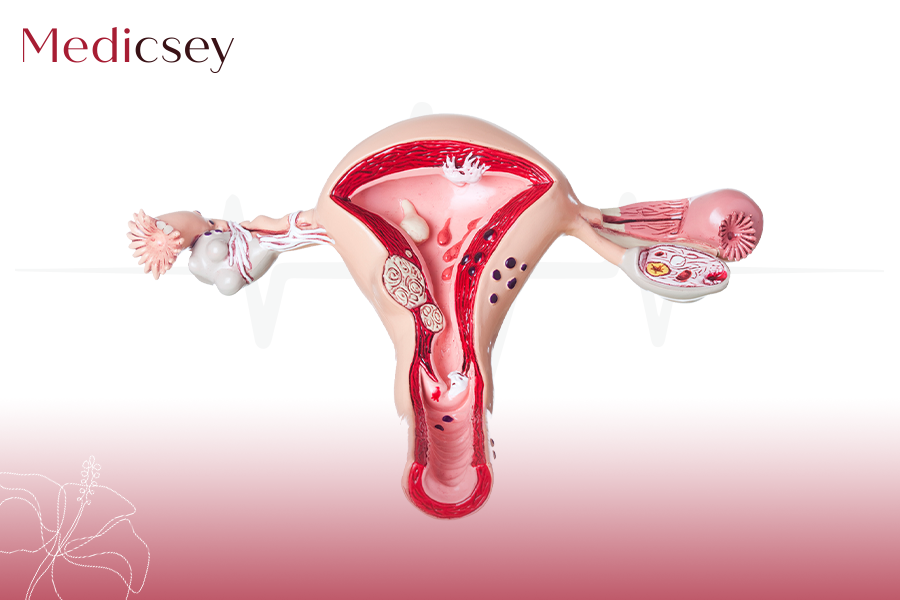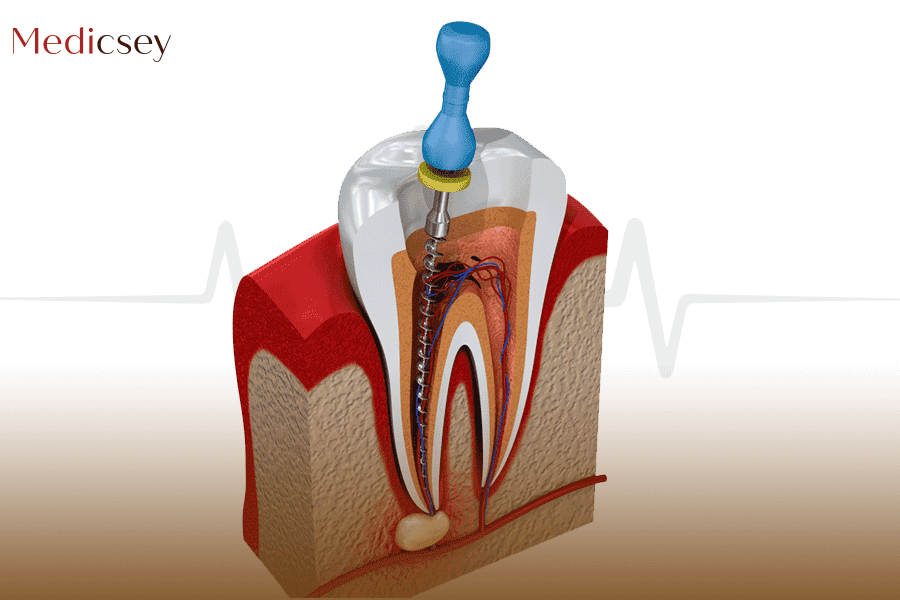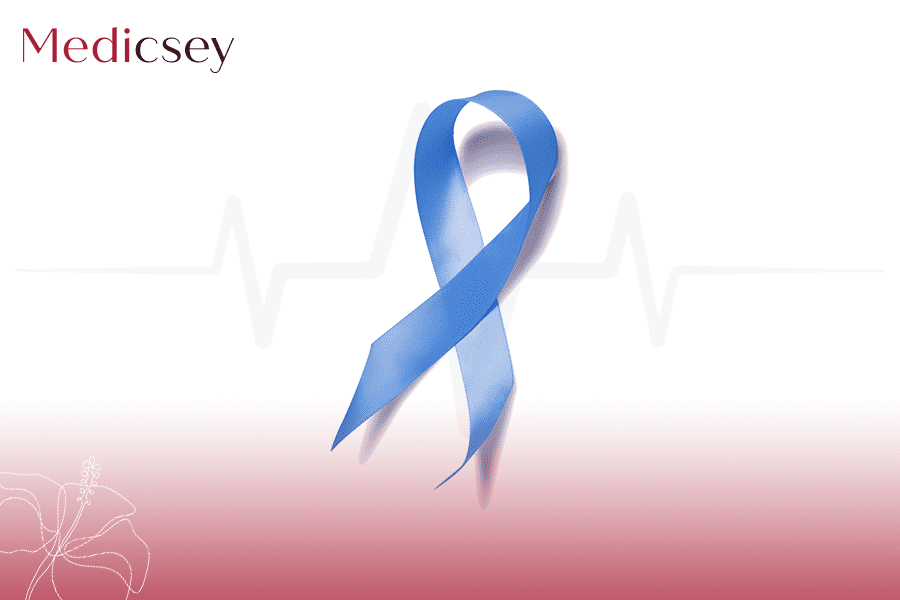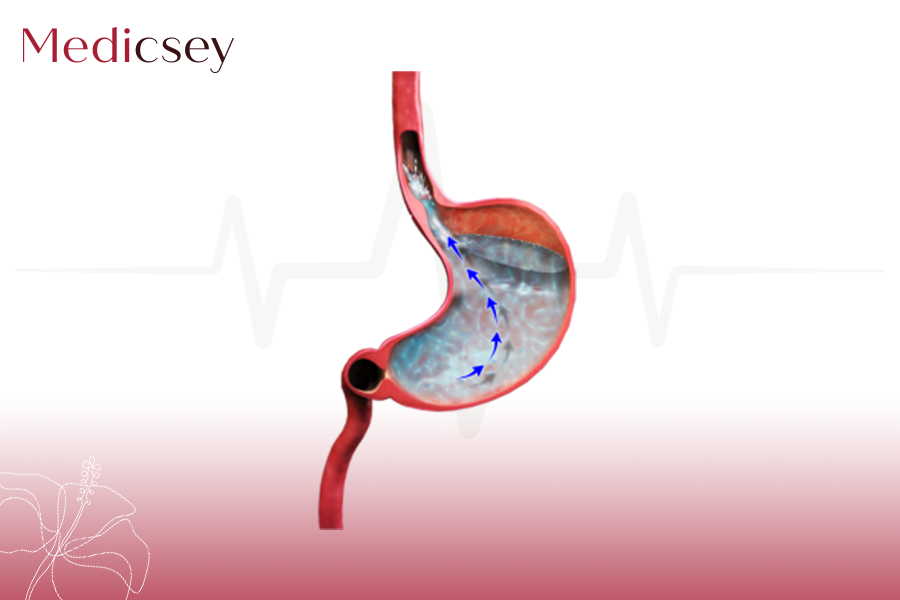Table des matières
Le syndrome des ovaires polykystiques (SOPK), connu en anglais sous le nom de Polycystic Ovary Syndrome (PCOS), est l’un des troubles hormonaux les plus fréquents chez les femmes en âge de procréer. Il apparaît généralement à la puberté et peut accompagner la femme tout au long de sa vie reproductive si aucune prise en charge médicale appropriée n’est mise en place.
En Turquie, et plus particulièrement à Medicsey Istanbul, nous proposons des solutions médicales modernes et personnalisées pour le traitement du SOPK, sous la supervision de la meilleure gynécologue en Turquie, reconnue pour son expertise et son approche humaine.
Qu’est-ce que le SOPK ?
Le SOPK est un trouble endocrinien caractérisé par un déséquilibre hormonal qui perturbe le fonctionnement normal des ovaires. Les femmes atteintes présentent souvent :
- Des règles irrégulières ou absentes.
- Une diminution de l’ovulation, entraînant des problèmes de fertilité.
- Une tendance au surpoids ou à l’obésité, en particulier au niveau de l’abdomen.
- Une pilosité excessive dans des zones typiquement masculines (visage, poitrine, ventre).
- Une peau grasse, une chute de cheveux ou de l’acné persistante.
Mais au-delà de ces symptômes visibles, le SOPK augmente le risque de développer des maladies chroniques comme le diabète de type 2, les maladies cardiovasculaires et même un risque accru de cancer de l’endomètre si le syndrome n’est pas traité correctement.
Quelles sont les causes du SOPK ?
Les recherches scientifiques montrent que les causes du SOPK sont multifactorielles :
- Une prédisposition génétique, car il existe souvent des antécédents familiaux.
- Un déséquilibre dans la production d’hormones, en particulier l’excès d’androgènes (hormones masculines).
- Une résistance à l’insuline, très fréquente chez les patientes atteintes, qui favorise la prise de poids et le développement du diabète.
Quels sont les traitements du SOPK ?
Le traitement du SOPK ne repose pas sur une seule solution, mais sur une prise en charge globale et personnalisée adaptée aux symptômes de chaque patiente:
Changements de mode de vie
- Une alimentation équilibrée et un programme de gestion du poids.
- L’activité physique régulière pour améliorer la sensibilité à l’insuline.
Traitement médicamenteux
- Les contraceptifs oraux pour réguler le cycle menstruel.
- Les médicaments anti-androgènes pour réduire la pilosité et l’acné.
- Les traitements favorisant l’ovulation pour les patientes souhaitant concevoir.
Médecine de la fertilité
- Stimulation ovarienne.
- Techniques de procréation médicalement assistée (PMA) comme la FIV (fécondation in vitro).
-
Suivi endocrinologique et gynécologique
- Prévenir les complications métaboliques (diabète, hypertension, hypercholestérolémie).
- Réduire les risques de cancer de l’endomètre par un suivi régulier.
Pourquoi choisir la Turquie pour traiter le SOPK ?
La Turquie est devenue une destination de référence mondiale dans le domaine de la santé féminine et de la gynécologie. Les patientes internationales choisissent Istanbul pour plusieurs raisons :
- Médecins experts et formés à l’international, avec une solide expérience dans la prise en charge du SOPK et de l’infertilité.
- Technologies médicales de pointe, utilisées dans les hôpitaux et cliniques modernes.
- Coûts compétitifs, souvent bien inférieurs à ceux pratiqués en Europe occidentale.
- Approche holistique : soins médicaux, accompagnement psychologique et suivi nutritionnel.
Medicsey Istanbul – La meilleure prise en charge du SOPK
Chez Medicsey Istanbul, nous comprenons que le SOPK ne touche pas seulement la santé reproductive, mais influence aussi la qualité de vie quotidienne. C’est pourquoi nous proposons :
- Des consultations personnalisées avec la meilleure gynécologue en Turquie, experte dans le traitement du SOPK et de l’infertilité.
- Un diagnostic complet basé sur des analyses hormonales, échographies et tests métaboliques.
- Des plans de traitement sur mesure, adaptés aux besoins spécifiques de chaque femme.
- Un accompagnement multilingue, pour que chaque patiente se sente écoutée et comprise.
Conclusion – Commencez votre parcours de traitement avec Medicsey
Le traitement du syndrome des ovaires polykystiques en Turquie est aujourd’hui une réalité accessible et efficace. Grâce à l’expertise médicale, aux technologies modernes et à l’approche humaine de notre équipe, nous aidons chaque femme à retrouver son équilibre hormonal, sa fertilité et sa confiance en elle.
🌸 Votre santé et votre bien-être sont notre priorité.
👉 Contactez Medicsey Istanbul dès maintenant et commencez votre parcours de traitement personnalisé contre le SOPK avec la meilleure gynécologue en Turquie.
Contactez-nous via WhatsApp
En savoir plus: Découvrez le meilleur gynécologue en Turquie




.png?locale=fr)
.webp?locale=fr)




.png?locale=fr)
